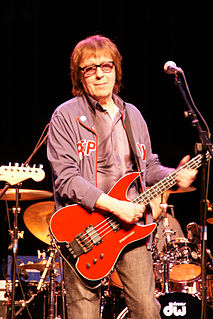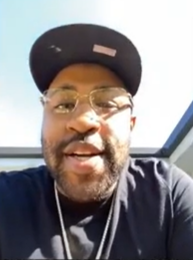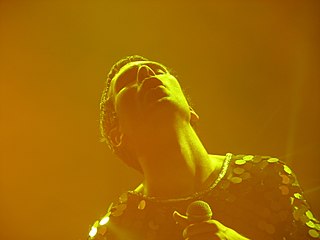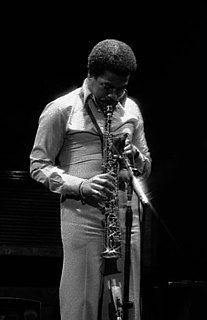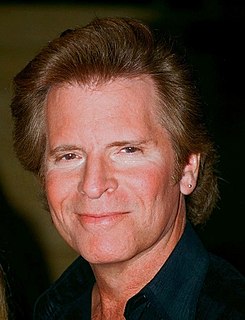A Quote by Bill Wyman
Onstage I like to play with a an 18-inch speaker, which very few bass players do. I need that fat, underneath sound, which I've always had. It suits me admirably to do it like that, and I can imitate that sound by plugging directly into the board in the studio.
Related Quotes
I'm very interested in vertical space.I want the players to listen to their sound in such a way that they hear the complete sound they make before they make another one. So that means that they hear the tail of the sound. Because of the reverberation, there's always more to the sound than just the sound.
When we sit in meditation and hear a sound, we think, 'Oh, that sound's bothering me.' If we see it like this, we suffer. But if we investigate a little deeper, we see that the sound is simply sound. If we understand like this, then there's nothing more to it. We leave it be. The sound is just sound, why should you go and grab it? You see that actually it was you who went out and disturbed the sound.
There's a difference between writing, the written word, and music. When you have the blank page it doesn't make a sound, which is like what happens to me every night when I'm playing. There is that crazy moment: the first mark you make on the page. But sound can inspire sound, in a way that words can't inspire words - at least for me. The nature of sound itself is still a huge mystery to me. I'm very happy about that.
I got into dialogue because my parents began taking me to see plays from when I was very young. Too young, often, to understand the play I was watching: Who's Afraid Of Virginia Woolf when I was nine years old; That Championship Season when I was ten years old. But I loved the sound of dialogue; it sounded like music to me and I wanted to imitate that sound.
I definitely prefer things to be dark, I definitely prefer things to not be particularly obvious. I like a lot of mystery in music, and I like it when things don't sound just like what they sound like always. But at the same time I like everything to sound very earnest and honest. So I don't really think that I have a definite stamp, but if people see that, that's awesome.
